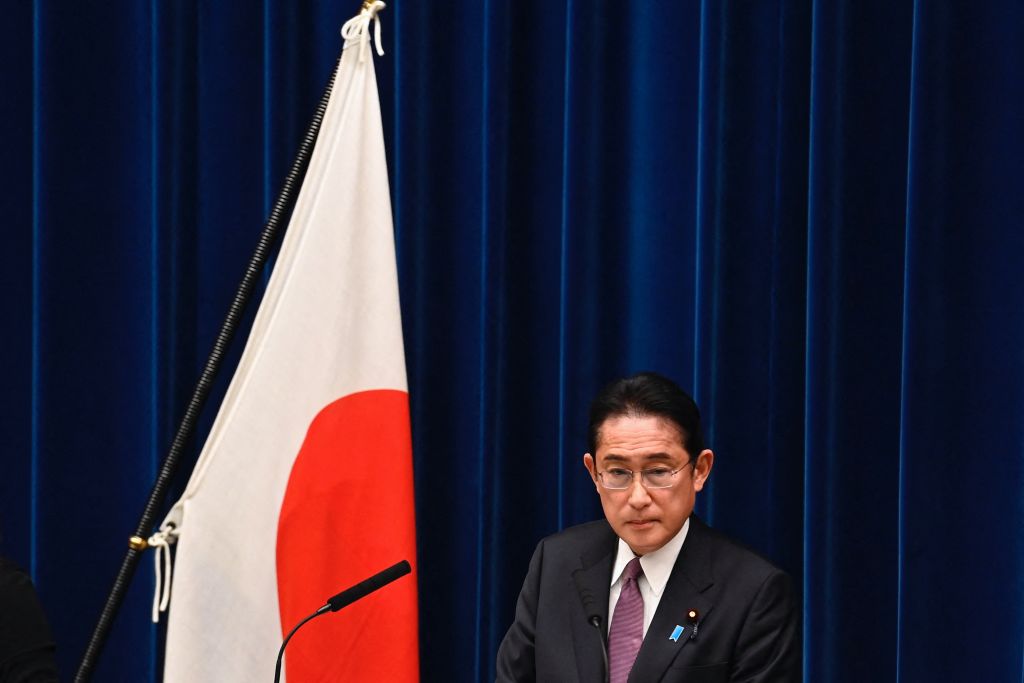Shinzo Abe, Japan’s murdered former prime minister, would this week be especially proud of his country. At long last, and after years of protests and strife during Abe’s time in power, Japan has announced a reversal of its uncompromising post-war pacifism. Japan, its current prime minister Fumio Kishida has said, will now begin to rearm.
What was in question was not armaments, per se, but rather the ability of Japan’s armed forces, the self-defence forces as they are called, to fight abroad. Japan’s post-war constitution declared the country formally pacifist, and renounced both the ability to wage war and the means to do so. But all of this is changing as China becomes a superpower – in particular an especially bellicose one with an invasion of Taiwan in its sights within the next five years.
‘In such a severe environment,’ Japan’s prime minister Fumio Kishida said late last week, ‘counterstrike capability, which can deter an attack, or force an enemy to stop one, is a capability which will become increasingly vital.’

Get Britain's best politics newsletters
Register to get The Spectator's insight and opinion straight to your inbox. You can then read two free articles each week.
Already a subscriber? Log in






Comments
Join the debate for just £1 a month
Be part of the conversation with other Spectator readers by getting your first three months for £3.
UNLOCK ACCESS Just £1 a monthAlready a subscriber? Log in